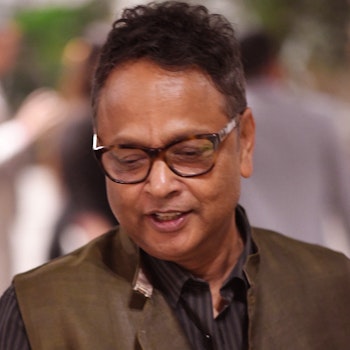By United Nations estimates, 60 percent of the world’s population will be urban by 2030. With the increasing speed of urbanization, especially in the developing world, scholars are now rethinking standard concepts and histories of modern cities. The Spaces of the Modern City historicizes the contemporary discussion of urbanism, highlighting the local and global breadth of the city landscape.
This interdisciplinary collection examines how the city develops in the interactions of space and imagination. The essays focus on issues such as street design in Vienna, the motion picture industry in Los Angeles, architecture in Marseilles and Algiers, and the kaleidoscopic paradox of post-apartheid Johannesburg. They explore the nature of spatial politics, examining the disparate worlds of eighteenth-century Baghdad, nineteenth-century Morelia, Cold War-era West Berlin, and postwar Los Angeles. They also show the meaning of everyday spaces to urban life, illuminating issues such as crime in metropolitan London, youth culture in Dakar, “memory projects” in Tokyo, and Bombay cinema. Informed by a range of theoretical writings, this collection offers a fresh and truly global perspective on the nature of the modern city.
The contributors are Sheila Crane, Belinda Davis, Mamadou Diouf, Philip J. Ethington, David Frisby, Christina M. Jiménez, Dina Rizk Khoury, Ranjani Mazumdar, Frank Mort, Martin Murray, Jordan Sand, and Sarah Schrank.
Gyan Prakash is the Dayton-Stockton Professor of History at Princeton University. Kevin M. Kruse is associate professor of history at Princeton University.
"This ambitious collection of essays is the result of a series of seminars at Princeton University aimed at developing fresh thinking about the city as a dynamic physical space that 'shapes, and is shaped by, power, economy, culture and society.' A fascinating introductory essay by Gyan Prakash outlines recent urban theorising and counters the idea that, in an age of globalisation, specific cityscapes are losing their significance: our urban experiences still depend on 'local lifeworlds', rich with memories and imagination."—The Guardian
"This is a very ambitious collection of diverse, high quality essays. Prakash is certainly right that the study of the modern city is stuck in the literature of European metropolises, and I fully agree with the direction he stakes out in his introduction. The Spaces of the Modern City may be worth its price simply for the introduction."—Thomas Bender, author of The Unfinished City: New York and the Metropolitan Idea
"This is an interesting and substantial collection of essays. Combining conceptual sophistication with rich historical studies, the book moves beyond familiar reference points in debates about urban modernity to open up nuanced perspectives on experiences in a wide range of places and periods. The volume makes a significant addition to the growing literature on cities and urbanism."—David Pinder, Queen Mary, University of London
"Its global reach and attention to history make this wonderfully ambitious collection unusual. It is very much in line, in terms of scope and conception, with where historically minded urban studies should be heading. Its interdisciplinarity, determination to look beyond the typical Western cities, and insistence on urban centers remaining the source of local concerns—all this is to the good. This is a real landmark volume."—Jeffrey Wasserstrom, author of China's Brave New World: And Other Tales for Global Times.


